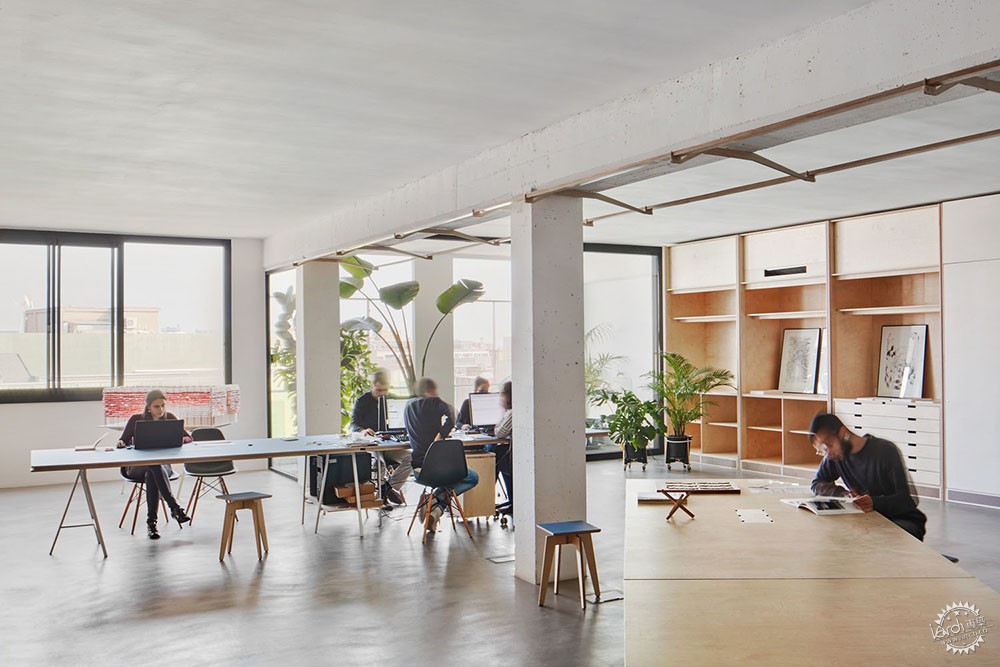
Co-Working Office / APPAREIL. Image © José Hevia
空间心理学:室内设计如何影响人们的行为?
Psychology of Space: How Interiors Impact our Behavior?
由专筑网邢子,小R编译
我们一生大部分的时间都在室内度过,所以我们所处的空间对我们的心理行为起着重要作用。实际上,环境心理学或空间心理学是人与所居住的空间之间的相互作用。照明、颜色、配置、比例、声音和材料等赋予了每个人不同的感觉,并产生了一系列的影响和实践。
从产生温暖和安全感,到定义幸福感,或创造积极有效的工作环境,空间可以对我们的行为方式或感觉产生很大影响。因此,应根据居住者的社会和心理需要考虑室内设计和创意。
With most of our lives spent indoors, the space we occupy has a major role in our psychological behavior. Environmental psychology or Space psychology is, in fact, the interaction between people and the spaces they inhabit. Lighting, colors, configuration, scale, proportions, acoustics, and materials address the senses of the individual and generate a spectrum of feelings and practices.
From inducing warmth and safety, defining well-being, or creating a positive and efficient working environment, space can have a whole lot of impact on how we act or on what we feel; therefore, design and creative measures should be considered according to the social and psychological needs of the occupants.
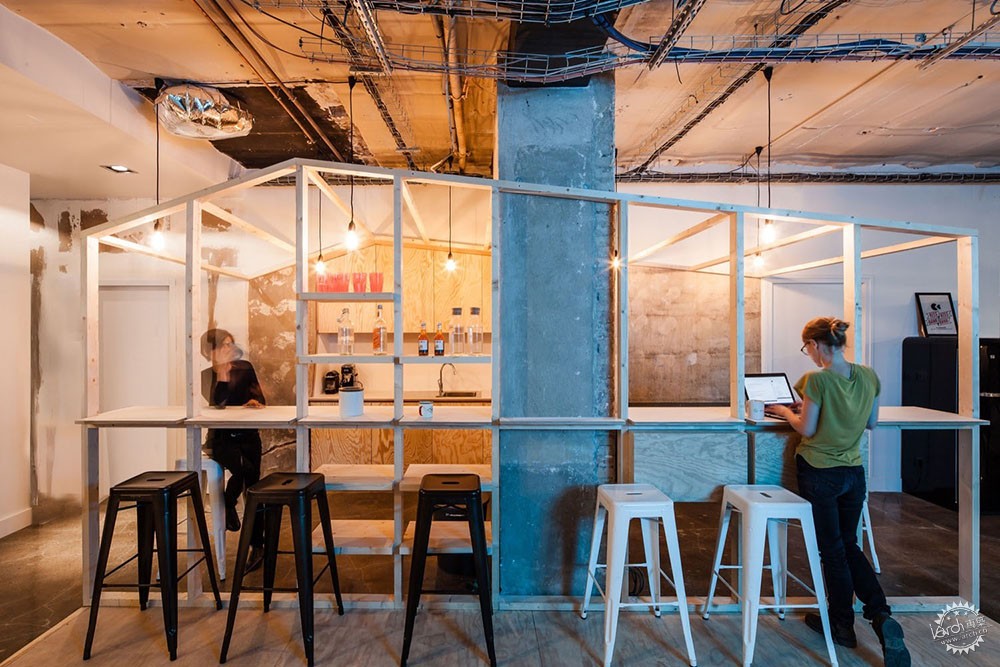
Kiss Kiss Bank Bank's HQ / Agence Vincent & Gloria Architectes. Image © Arnaud Schelstraete
圣地亚哥大学新校区建筑与设计学院的专家教授Dave Alan Kopec认为,空间心理学实际上是“在已建成的自然环境中研究人类的关系和行为”。通过大脑的特殊部分对所处空间的几何形状做出反应,直接影响人们的潜意识,促进情绪和感知。室内设计已成为人们心理的固有组成部分,尽管这不是唯一的因素,但内部空间具有重大意义,且建筑师有责任为用户提供更好的设计方案,并将这些心理学要素纳入其中。
Psychology of space is in fact “the study of human relations and behaviors within the context of the built and natural environments” according to Dave Alan Kopec, a specialist in the field and professor at the New School of Architecture and Design in San Diego. Having a direct impact on your subconscious, contributing to your emotions and perceptions, through that special part of your brain that reacts to the geometry of the space you occupy, interior design became an inherent part of people’s psychology. Though it is not the only factor involved, interior space has big implications, and it is the architect’s responsibility to shape tangible solutions for users and incorporate these ideas into the structure.
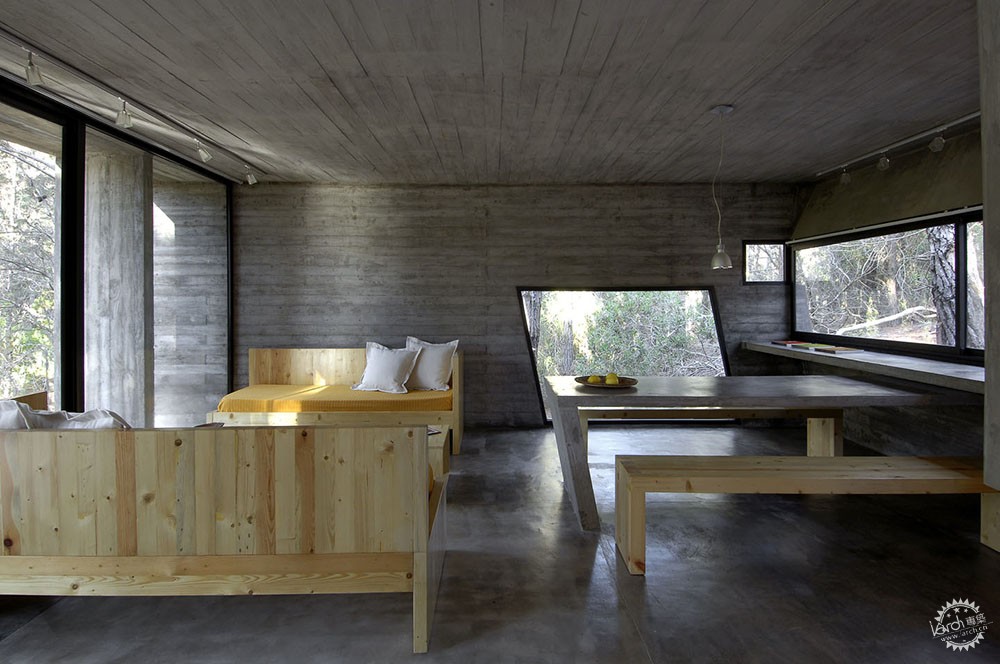
Concrete House / BAK Arquitectos. Image © Daniela Mac Adden
在过去的几十年中,随着功能设计的兴起,空间仅是其所提供内容的反映。在这个面向消费的社会里,人们被放在“盒子“中,从事着生产、生活活动。而实际上,随着工业革命,人们涌入了原本没有”装备“的城市,拥挤的社会雏形就开始了。常规的住房被设计为可以容纳更多的居民,房屋和工作都面向快节奏的生产,而后续就出现了人们对空间及其背后的心理效应的应用。
With the rise of functionality in the last decades, space became a mere reflection of the program it holds. People were stacked in boxes to produce and feed into a consumer-oriented society. In fact, this idea of just cramming individuals in any place started as the industrial revolution brought flux of people into non-equipped cities. The regular house plan was divided to accommodate as many newcomers as it could retain. Homes and jobs were oriented towards fast-paced-production. Usage of space and the psychological understanding behind it came later on in the future.
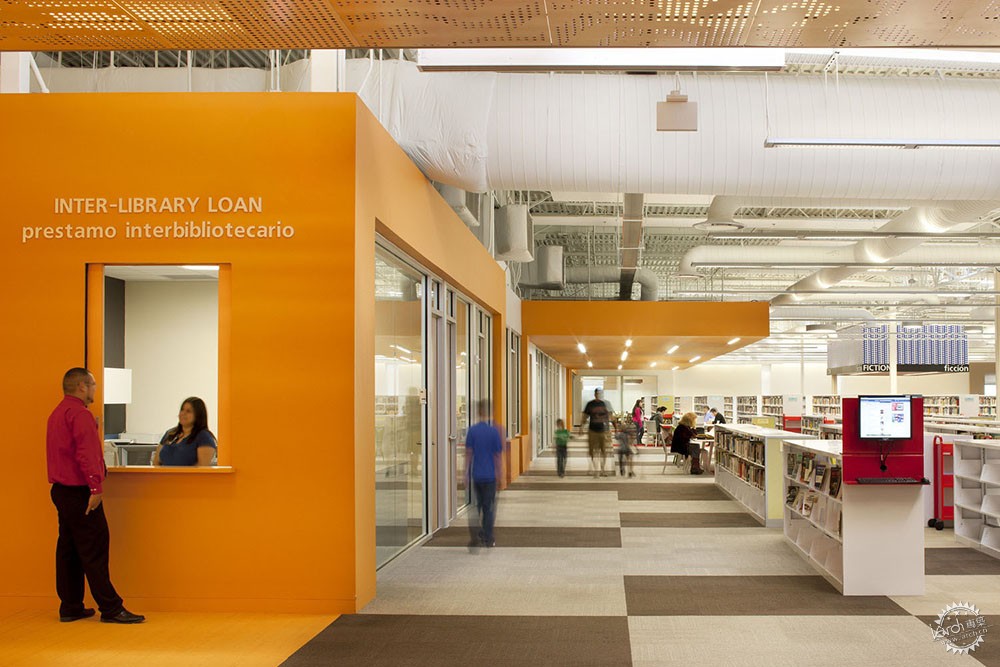
McAllen Main Library / MSR Design. Image © Lara Swimmer
追溯到近代,诺丁汉大学建筑与建筑环境系建筑师兼副教授Sergio Altomonte在《独立报》上发表了一篇文章,在探讨图书馆的新设计时指出,“建筑物和城市空间首先要围绕住户进行设计。如今,建筑作为影响身体、生理和心理健康的因素,探讨其重要性具有重大的意义”。
Back to our modern times, in an article published in the Independent tackling the new designs of libraries, Dr. Sergio Altomonte, architect and associate professor in the department of architecture and built environment at the Nottingham university specified that “buildings and urban spaces should be designed first and foremost around their occupants. The importance of architecture as a trigger to physical, physiological and psychological wellbeing is nowadays becoming a topic of significant relevance.”
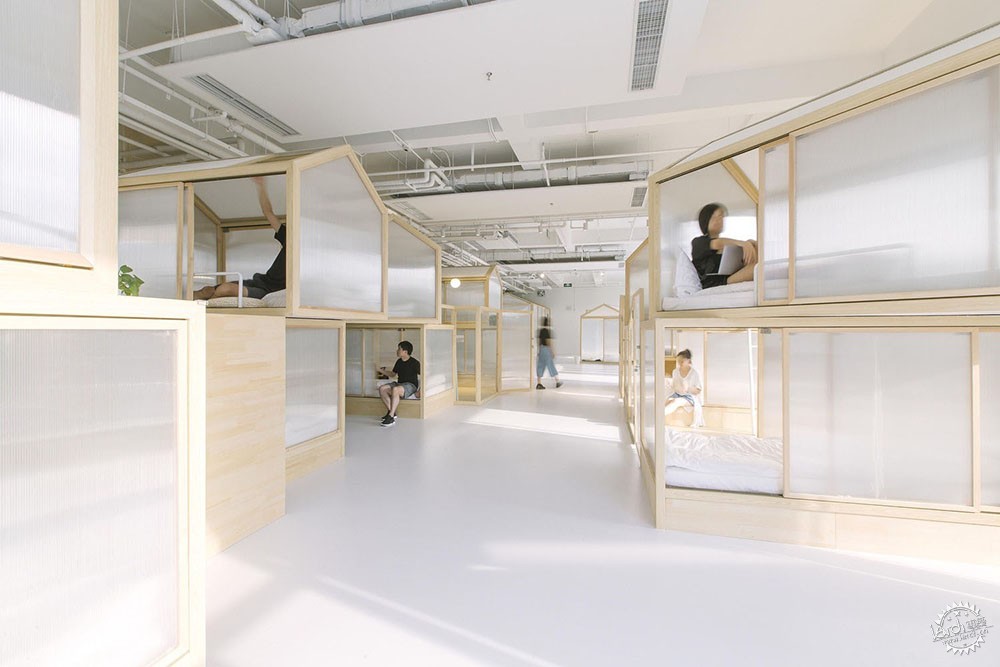
Together Hostel / Cao Pu Studio. Image © Zhang Zheming
环境心理学家和室内设计师Migette Kaup说:“建筑学的逻辑可以增强我们希望看到的特定场所类型的行为。”换句话说,建筑是物理手段。建筑师需要注意的关键因素包括安全性、社交联系性、活动便利性和感官刺激,更具体的措施包括光线、色彩、艺术品、通风等。例如,一些诸如平衡、比例、对称和节奏等设计原则可以引入和谐感。另一方面,颜色背后有一个非常简单的逻辑,即颜色越暖,空间就越紧凑,同时还可以唤起舒适感或促进沟通。光的设计在很大程度上取决于功能,昏暗的灯光暗示着阴暗的空间,而明亮的灯光则定义了更广阔的观感,自然光有助于生产和身体恢复。
“Architectural cues can provide reinforcement to the desired behaviors that we would like to see enacted in specific place types,” says environmental psychologist and interior designer Migette Kaup. In other words, architecture is the physical mean. While key factors, that architects need to pay attention to, include safety, social connectedness, ease of movement, and sensory stimulation; more concrete measures encompass light, colors, art, ventilation, etc. For example, some principles of design comprising balance, proportion, symmetry, and rhythm can introduce a sense of harmony. Colors, on the other hand, have a very simple logic behind them, the warmer the color is, the more compact space becomes. They can also evoke feelings of comfort or stimulate communication. Light depends greatly on the function. A dim light suggests a gloomy space while a bright light defines a bigger animated appearance. Natural light stimulates production and recovery.
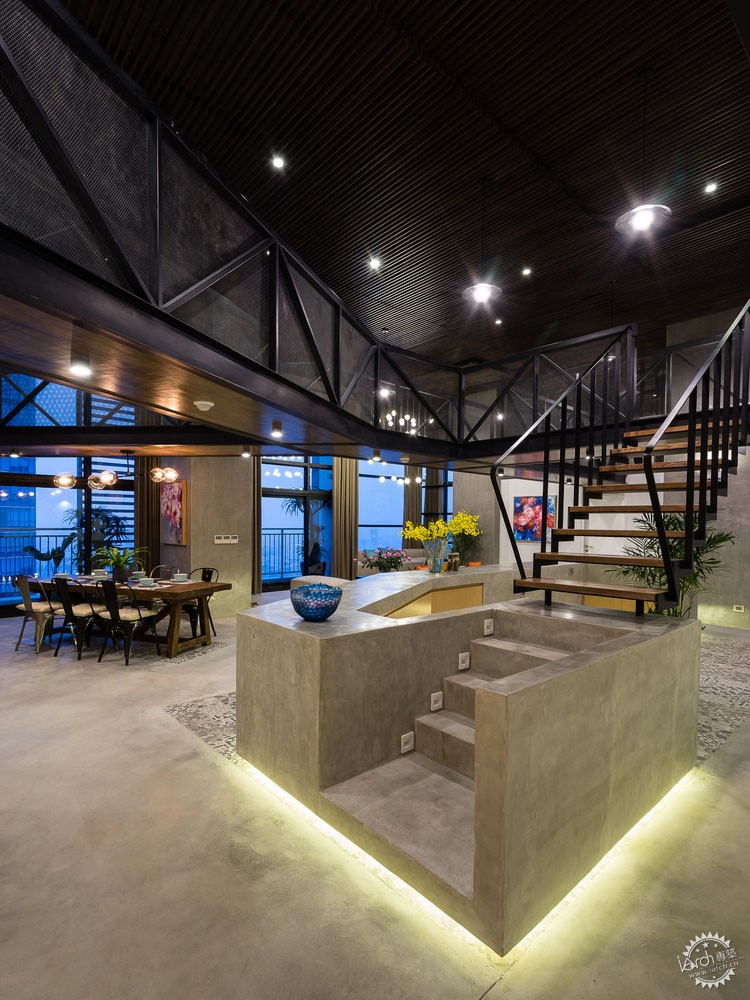
Party Apartment / Nghiêm Phong + Đào Thành. Image © Quang Tran
有些空间增加了人们的焦虑感,而另一些空间则让人产生了宁静的感受,但人们似乎并不知道其中的原因。实际上,环境心理学并非总是有特定的套路,而更多地是关注研究人们与周围环境的相互作用。对此,马萨诸塞州米德伯勒市Massasoit社区学院的环境心理学教授Irving Weiner表示:“有一些我们看不见或无法触及的环境,却对我们的行为或情绪有着直接影响。”实际上,这些因素并不容易被辨别。
While some spaces add up to your anxiety, others provoke a sense of serenity, and you can’t seem to know why. In fact, not always evidence-based, environmental psychology focuses more on research, and on people’s interactions with their surroundings. On that, Irving Weiner, AIA, an environmental psychology professor at Massasoit Community College in Middleborough, Mass states that “some of these environmental influences we cannot see or touch, yet they have a direct influence on our behavior or mood.” Bottom line, the factors are not easily discernable.
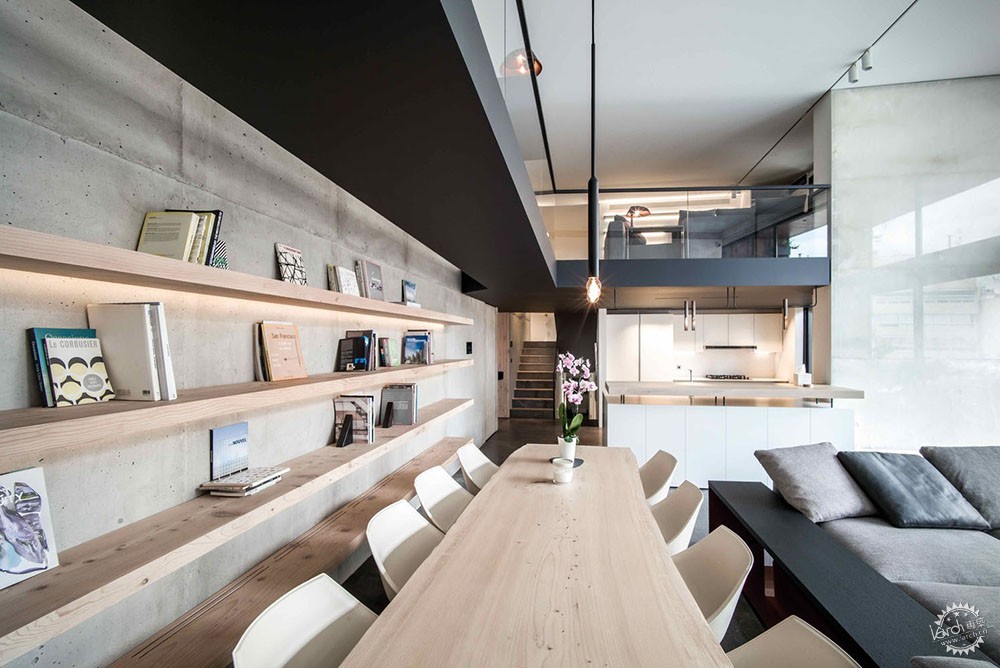
Sursock Apartment / platau. Image © Wissam Chaaya
在设计过程中如果考虑到空间心理学,可以提高商业项目的生产率,提高零售企业的销售额,并加快医疗产业的治愈速度。然而,由于缺乏明确的指导方针,心理学对空间的设计转换仍然不够明晰。所以,这在很大程度上取决于设计师的敏感性、创造力和对研究的理解。康奈尔大学设计与环境分析系教授Alan Hedge表示:“问题的一部分原因是,该领域的许多工作都需要关注心理学或行为学,并且这些也很难简单地转化为具体的设计建议。”
Taken into account in the design process, space psychology can lead to better productivity in commercial projects, bigger sales in retail ventures, and accelerated recovery in healthcare developments. Nevertheless, with the absence of explicit guidelines, the translation into architecture is still unclear. It will highly depend on the designer’s sensitivity, creativity, and understanding of the research. “Part of the problem is that much of the work in the field is very psychological [or] behavioral, and it doesn’t easily translate into specific design recommendations,” says Alan Hedge, a professor at Cornell University’s Department of Design and Environmental Analysis.
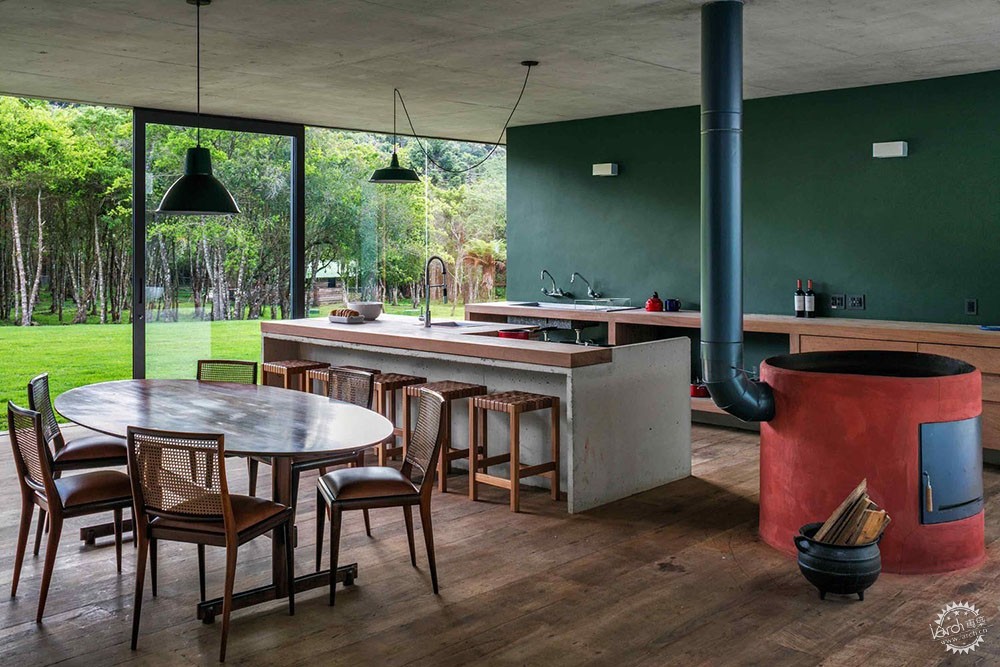
House in Mantiqueira / Una Arquitetos. Image © Nelson Kon
归根结底,设计是一个非常复杂的概念,而居住在这些空间中的人也是如此。 “建筑重要吗?当然。但它可以使人们免受周围政治环境的影响吗?不。”皇家艺术学院建筑学院院长Adrian Lahoud如是说。
At the end of the day, design is quite complex, and so are the individuals inhabiting these spaces. “Does architecture matter? Absolutely. Can it insulate people from the political circumstances around them? No” affirms Adrian Lahoud, Dean of the school of architecture at the Royal College of Art.
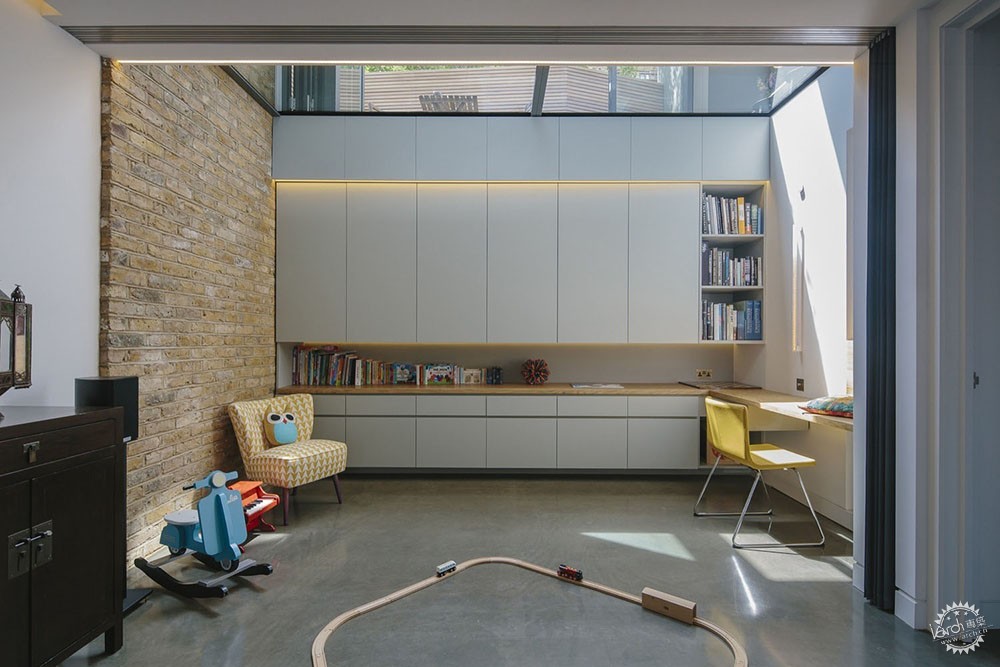
Brackenbury House / Neil Dusheiko Architects. Image © Tim Crocker
|
|
